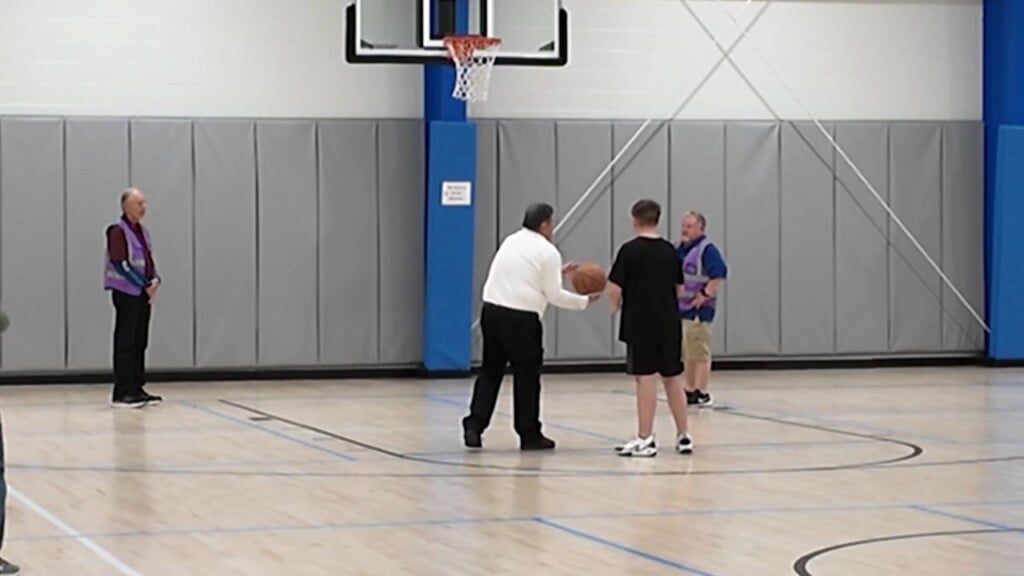How you can prepare for a growth recession
DELMARVA – While many Americans are all too familiar with what the pinch of a recession feels like, economists are projecting something slightly different could be looming: a growth recession. This comes as the Federal Reserve has raised interest rates four times, by 2.75%, just this year.
What is a growth recession?
A recession, by definition, is two consecutive quarters of no growth in the United State’s gross domestic product, or GDP. The GDP is the total value of all the finished goods and services produced within a country. So, what is a growth recession?
“A growth recession is a term that refers to an economy that’s slowed down, but not to the level that is the official definition of a recession,” said John Hickman, President of BEACON at Salisbury University. “A growth recession means that the economy is still above a negative growth, but it’s not enough to support additional employment.”
This possibility hangs over American consumers as the Federal Reserve is aiming for a “soft landing”. “A soft landing means that the economy is able to slow down its inflation, but not enough to trigger a rise in unemployment,” said Hickman.
How did we get here?
CPA Mark Welsh tells 47 ABC a big reason for the possibility of a growth recession is that the Federal Reserve will likely continue to raise those rates. Two more meetings are scheduled for the Federal Reserve in November and December. Welsh says we could see the rates go up an additional 1% to 1.5% before the end of 2022.
“There are projections that the Federal Reserve will raise rates in both of those meetings. They don’t have to wait until those meetings, they can do it before. But, typically, they wait until those assigned meeting dates,” said Welsh. “People are losing their jobs, or hours are being cut back. That means they’re going to have less discretionary income. It means they’ll spend less money, and that’s where the Fed comes in. They want the consumer to stop spending as much money to get inflation under control.”
The Federal Reserve is increasing rates because they want to reduce inflation, according to Welsh. “All the consumers out there are seeing it in everything they do, whether it’s entertainment, food, travel,” he said. “They’re trying to combat that. They want to reduce inflation and get it under control under normal inflation growth rates.”
How will consumers be impacted, and how can they prepare?
For individual consumers, the effects of a growth recession will feel much like they would in a regular recession, says Welsh. One of the biggest impacts could be growing unemployment.
“We’re not going to be able to create enough jobs to absorb all those new people. And then you have all the people on the sidelines who are looking for work, and they’re not going to have work,” said Welsh.
With the threat of unemployment and a pinched pocket, Welsh says there are steps consumers can take to stay prepared.
One of the first actions consumers can take, is taking another look at their variable rate debt. Welsh says that includes things like credit cards, certain mortgages, and consumer loans. “It’s a direct result. If the Federal Reserve increases 0.75% at a meeting, and you have an adjustable rate, it’ll go up 0.75% at a minimal,” said Welsh.
If you can, Welsh recommends paying off or down any variable rate debt. Consumers should also prepare to refinance any fixed rate debt they may have. That includes certain mortgages, student loans, or auto loans. Welsh says creating a strict budget and staying with it could help in those areas.
“You need to be able to pay your fixed rate expenses. But when you create a budget, what can you do to reduce your variable expenses?” said Welsh. “You need to really build up a fund that you can cover for six months. That’s pretty much the minimum. You’ve got to have at least six months in case you lose your job and need to look for one.”
Americans could also start looking for other sources of income, bartering, or researching community organizations that might be able to help with financial struggles, says Welsh.
How will business owners be impacted, and how can they prepare?
For business owners, President of the Dorchester County Chamber of Commerce Bill Christopher says preparation is also key. He says the goal is become as “recession proof” as you can.
Christopher says it starts on the back end, by preparing for any potential loss in business. That comes with figuring out how to better control expenses on already razor-thin margins.
“We’re going to see unemployment go up because businesses have to tighten their belts and reduce staffing. In most organizations, staffing will be their highest expense,” said Christopher.
While Christopher says many businesses are still looking for people to fill up their rosters, taking care of existing employees is crucial in challenging economic times.
“You want to treat your staff as fairly as you can because you’re going to need them when it’s over and we get back into a growth mode. Retrain, double train, cross train. Try to keep your staff as engaged as you can,” said Christopher. “The better you treat your staff, the better you plan for it, and the better you communicate with your teams, they better off you’re going to be at the back side of the recession.”
Christopher tells 47 ABC that maintaining healthy relationships with suppliers is also key. “Make sure you stay in touch. If you’re not buying as much from your suppliers as you did, make sure you’re still communicating with them so you don’t lose your line, because the supply chain is still tight,” he said.
And of course, business owners need to keep the customer in mind, says Christopher. “As money continues to get tight, if you’re feeling the pinch, so are your customers. So, what are you doing to help keep your customers happy and satisfied with what you’re doing?”
Who will come out on top?
From a business perspective, Christopher says some sectors may be better positioned to weather the financial storm than others. While businesses that supply every day necessities like groceries and fuel might do okay, Christopher says he has concerns about the hospitality industry.
“[People] stop going out to dinner, they stop traveling, they stop doing the things that are ancillary or not required to be done,” said Christopher. “There are some areas where the supply is off the charts, so the prices are going way off. That’s screwing with some businesses and their ability to deliver a product and solutions.”
However, Christopher says businesses hardest hit by the COVID-19 pandemic could be in a unique position to adjust and adapt. That’s because the pandemic already forced them to do so before, says Christopher.
“COVID-19 just created a really weird dynamic in terms of what was happening with people; where they wanted to work, how they wanted to work, and when they wanted to work,” said Christopher. “They might actually be in a better position to weather this than they would have been if we had normal semi-full employment with inflation, and then all of a sudden we ended up with everything going crazy.”
But, even though some businesses might be able to see that silver lining, it won’t be there for everyone. That’s why Christopher says now more than ever, it’s important to stay ready.
“There will be businesses that just can’t make it through the second time, and a lot of that is maybe as much psychological as it is financial. It’s just the stress of being a business owner with that much coming at you,” said Christopher.


